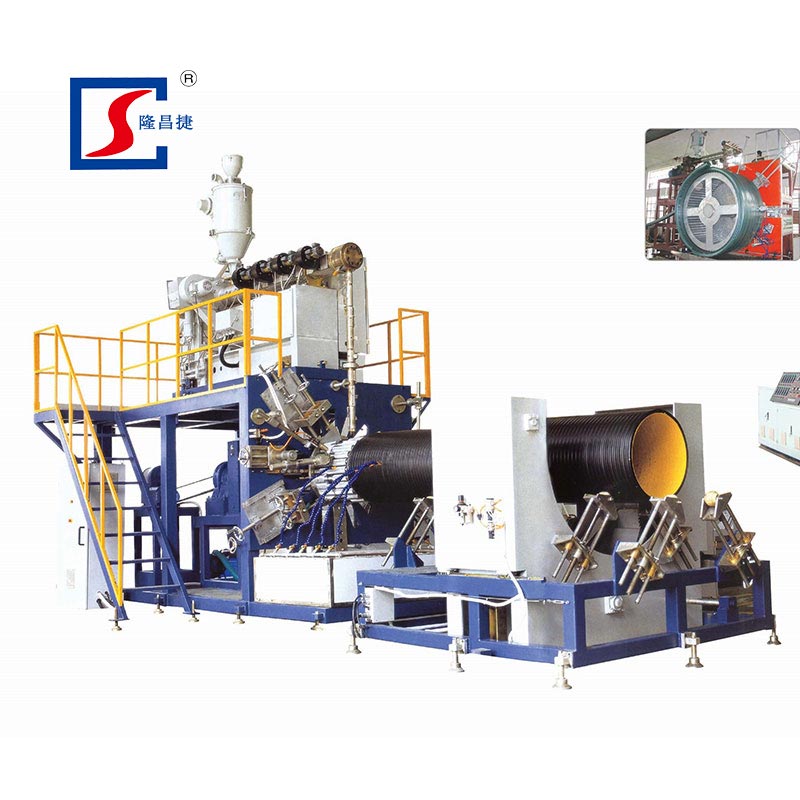What is a Pipe Production Line and Why is It Important?
2025-07-08
Pipes are essential components in various industries such as construction, oil and gas, water supply, and manufacturing. To meet the increasing demand for high-quality pipes, modern pipe production lines offer efficient, automated solutions for manufacturing pipes of different materials and specifications. But what exactly is a pipe production line, and why is it crucial for industries?
What is a Pipe Production Line?
A pipe production line is a series of interconnected machines and equipment designed to manufacture pipes from raw materials. It typically involves processes such as melting, extrusion, cooling, sizing, cutting, and finishing. Depending on the material, pipe production lines can produce plastic pipes (like PVC, PE, PP) or metal pipes (such as steel or aluminum).
The production line is designed for continuous operation, ensuring high efficiency, consistent quality, and scalable output.

What Are the Main Components of a Pipe Production Line?
Raw Material Feeding System:Feeds raw materials like plastic pellets or metal rods into the production process.
Extruder or Forming Machine:Melts and shapes the raw materials into pipe form.
Calibration and Cooling System:Maintains pipe dimensions and solidifies the pipe shape.
Haul-Off Machine:Pulls the pipe steadily through the production line.
Cutting Machine:Cuts pipes to required lengths.
Stacking and Packaging Equipment:Prepares finished pipes for storage or shipment.
What Types of Pipes Can Be Produced?
Pipe production lines can manufacture a variety of pipes including:
Plastic Pipes:PVC, PE (polyethylene), PP (polypropylene), PB (polybutylene), used for plumbing, irrigation, and drainage.
Metal Pipes:Steel, stainless steel, aluminum pipes for industrial, structural, and automotive applications.
Composite Pipes:Combining materials for specialized applications like corrosion resistance or enhanced strength.
What Are the Benefits of Using a Pipe Production Line?
High Efficiency:Automated processes increase production speed and reduce labor costs.
Consistent Quality:Precision equipment ensures uniform pipe dimensions and properties.
Flexibility:Capable of producing pipes of various diameters, thicknesses, and materials.
Cost-Effectiveness:Reduces waste and optimizes raw material use.
Scalability:Easily adjustable to meet different production volumes.
Where Are Pipe Production Lines Used?
Pipe production lines are essential in industries such as:
Construction:Water supply, sewage, and gas pipelines.
Agriculture:Irrigation and drainage systems.
Oil & Gas:Transportation of oil, gas, and chemicals.
Automotive and Aerospace:Fuel and hydraulic lines.
Manufacturing:Machinery and equipment piping.
What Should You Consider When Choosing a Pipe Production Line?
Material Compatibility:Ensure the line is suitable for the type of pipe you want to produce.
Production Capacity:Match the line’s output to your business needs.
Automation Level:Choose between semi-automatic or fully automatic lines based on your budget and workforce.
Quality Control Systems:Look for features like real-time monitoring and defect detection.
After-Sales Service:Reliable technical support and spare parts availability are crucial.
Conclusion: Why Invest in a Pipe Production Line?
A modern pipe production line is a strategic investment for manufacturers aiming to meet market demands efficiently while ensuring product quality. By leveraging advanced machinery and automation, businesses can reduce costs, improve consistency, and scale production with ease.
Whether producing plastic or metal pipes, a well-designed pipe production line is key to success in today’s competitive manufacturing landscape.


